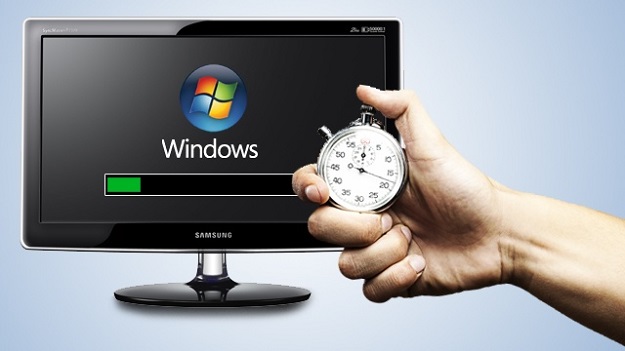A new computer or laptop can be a big investment, which means that many of us hang on to the same device for years. You may not even realise how much your computer’s performance has slowed since you first bought it. It’s only natural that machines become less efficient as they get older, but for those of us who rely on devices like laptops and PCs for work, it can be a problem.
The good news is that you don’t need to fork out on a new machine in order to reap the rewards of a speedy laptop. Thanks to the tech specialists at Syntax we’re providing you with 10 simple ways to increase your computer speed without paying for a whole new device.

1. Get rid of programs that run on StartUp
You might have noticed that your computer takes a long time to get started once you switch it on. A good way to tackle this is to remove items that run on StartUp. Just click the home button, then click “run” and type “msconfig” into the box. Click the “Startup” tab and remove any items you don’t use.
2. Clean your drive
You can also type “cleanmgr.exe” into the “run” menu in order to access Disk Cleanup. This will search for programs and files and allow you to clean out any which aren’t useful to you.
3. Be brutal about programs you don’t use
This is probably the most straightforward way to speed up your device, and arguably the most effective. However, many of us avoid it because it can be time consuming. Dedicate a couple of hours to clicking through the list of programs you have installed and get rid of any you don’t use.
4. Use Microsoft Fix It
Microsoft Fix It is a handy tool designed to help Windows users clean up and perform many common maintenance problems. Even better, it’s completely free.
5. Scan for malware and remove it
Get into the habit of doing regular scans of your system to identify and get rid of any malware that might be slowing your computer down. Brands like Avast and Norton offer free tools to help with this.
Don’t Miss-
How to Clean Out & Organize Your Computer
The Best Tools for Working Remotely
6. Clean your browser
No matter what browser you’re using, you can clean it. Emptying out your history, cookies and cached items will help improve the performance of your browser.
7. Scan for viruses, then get rid of them
Like malware, viruses and spyware shouldn’t be allowed to sit and fester in your system. Invest in an antivirus program to manually perform a scan around once a week.
8. Switch your browser
If you are currently using an older browser as your default, it’s time for an upgrade. The latest versions of programs like Google Chrome are faster and contain fewer bugs, so your internet is less likely to crash.
9. Small changes make a big difference
There are lots of little touches to your computer which you probably don’t even notice, but which use up space. Click on “computer”, “system properties” and then “advanced system settings”. From here you can select the option to “adjust for best performance”. This removes little features like mouse shadows and speeds up your system as a result.
10. Empty your recycling bin
Any deleted or discarded items automatically get sent to your PC’s recycling bin. This is handy for when you need to recover a document, but it also means that nothing has actually been removed from your system until you empty the bin on your PC desktop.
